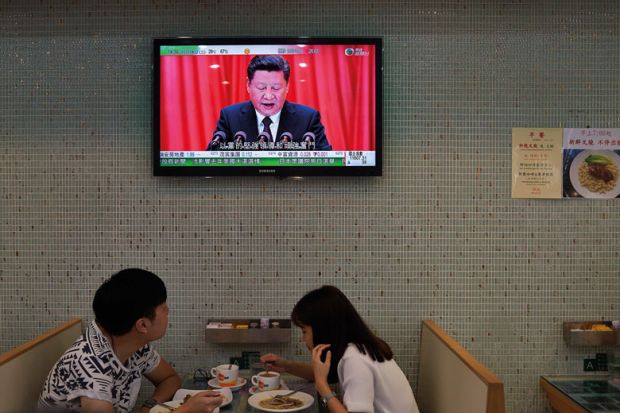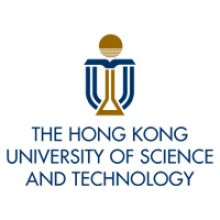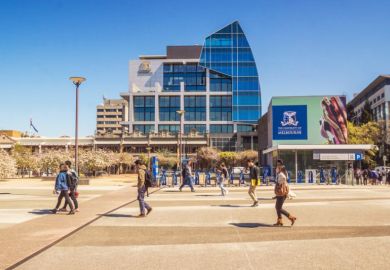A changing of the guard in Hong Kong university leadership could lead to a narrowing of diversity in the top echelons of academia in the city, scholars said.
Earlier this month, Hong Kong University of Science and Technology (HKUST) president Wei Shyy announced that he would leave his position next year, 11 months before the end of his contract. In the same week, City University of Hong Kong president Way Kuo said that he would not renew his contract in 2023, according to local media.
Neither academic gave a reason for their decision to leave, and the concurrence of their announcements was probably coincidental, but could represent a significant moment in the future direction of universities in Hong Kong as they come under increasing scrutiny from the Chinese Communist Party.
Notably, Professor Shyy and Professor Kuo are both Taiwanese, and are the only presidents from Taiwan among the city’s eight public institutions. Their departures come at a time when the future relationship between Taiwan and mainland China is the subject of increasing tension.
While both universities said that they would conduct global searches for their next presidents, Taiwan-born candidates are unlikely to be in the running for senior academic roles in Hong Kong in future, researchers said.
“While [Hong Kong] should remain open to the world, the trends suggest otherwise – Beijing will consider this an opportunity to ‘mainlandise’ the city’s education sector,” said David Zweig, an emeritus professor at HKUST.
He noted that most Taiwanese faculty members who left not long after 1997, when the UK transferred sovereignty of Hong Kong to China, were not replaced.
“A Hong Kong-based person could be selected, but it is highly unlikely unless they are pro-Beijing. But that is possible,” said Liz Jackson, professor of the philosophy of education at the Education University of Hong Kong, who noted that outside candidates could struggle “due to a lack of cultural knowledge locally and nationally”.
While he refrained from making predictions about the likelihood of the two universities attracting international candidates, Ka Ho Mok, vice-president of Lingnan University, said that attracting “top talents from diverse backgrounds” would be critical for the future of the island’s universities.
“I think university councils will continue adopting an ‘open door policy’ when recruiting candidates with world-class standing to lead universities,” he said.
But others were pessimistic about the posts’ appeal to overseas academics.
“I don’t see why anybody who is not in tune with the party’s objectives would risk taking a senior academic job of any sort in [Hong Kong] at the moment,” said Shaun Breslin, professor of politics and international studies at the University of Warwick.
“You don’t know if what still looks permissible today will end up on the wrong side of the limits of authoritarian control tomorrow.”
Kerry Brown, professor of Chinese studies at King’s College London, agreed.
“I cannot see anyone from Europe, America, Australia, or most other international pools of appropriately qualified senior university leaders looking at Hong Kong positions that keenly,” he said.
Whoever does take the helm will need to tread a careful line, Professor Brown added.
“Student demonstrations, claims – and then evidence – of political interference, and constant speculation and contention mean that these positions demand an impossible mix of academic standing and keen political instincts,” he said.
HKUST said that its presidential search committee “consists of members from a diverse background, with long years of services at and deep understanding of HKUST”.
Register to continue
Why register?
- Registration is free and only takes a moment
- Once registered, you can read 3 articles a month
- Sign up for our newsletter
Subscribe
Or subscribe for unlimited access to:
- Unlimited access to news, views, insights & reviews
- Digital editions
- Digital access to THE’s university and college rankings analysis
Already registered or a current subscriber? Login












